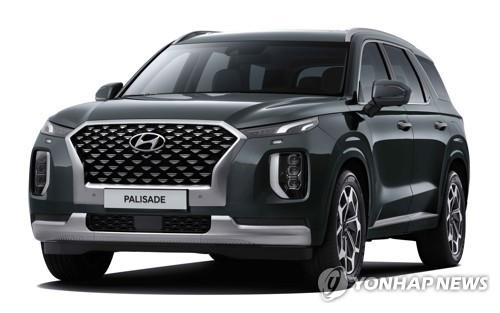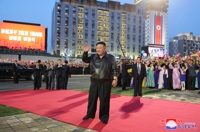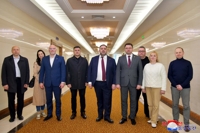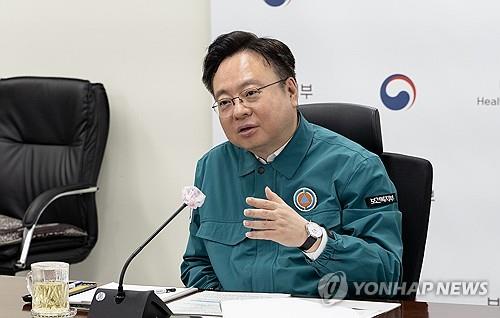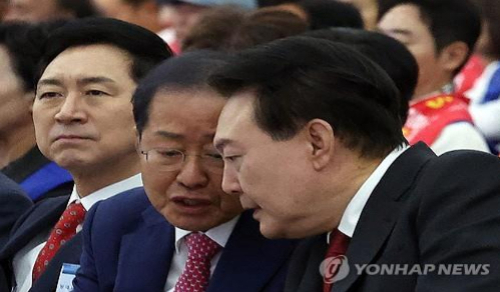Hyundai, Kia Q1 net estimated to have soared on base effect, SUV sales
By Choi Kyong-ae
SEOUL, April 14 (Yonhap) -- Hyundai Motor Co. and its affiliate Kia Corp. -- South Korea's two biggest carmakers -- are expected to have raked in solid earnings in the first quarter of the year on a base effect and an improved product mix, analysts said Wednesday.
In the first quarter of 2020, Hyundai and Kia suspended some of their assembly lines in Korea due to shortages of parts from China amid the coronavirus outbreak. There was no such one-off factor in their first-quarter results for this year.
Robust sales of their SUV and high-end models in the United States and emerging markets also likely helped drive up their quarterly net income, analysts said.
The corporate duo are scheduled to release their first-quarter earnings next week.
Hyundai is expected to report a net profit of 1.32 trillion won (US$1.18 billion) in the first quarter, up 58 percent from 552.7 billion won a year earlier. Kia is forecast to post a net income of 914.6 billion won, more than tripling from 266 billion won during the same period, according to market data firm FnGuide.
Hyundai's operating profit likely jumped 44 percent to 1.545 trillion won from 863.8 billion won, while Kia's soared 58 percent to 1.06 trillion won from 444.5 billion won, the data showed.
"The carmakers offered fewer incentives and spent less in marketing costs in the U.S. market as they kept low inventories amid the pandemic. Moreover, strong demand for their SUVs pushed up prices," Kwon Soon-woo, an analyst at SK Securities Co., said by phone.
From January to March, Hyundai and Kia posted a 22 percent on-year jump in sales to an all-time high of 326,680 units from 268,820 a year ago helped by demand for Hyundai's Palisade SUV and Kia's Telluride and Sorento SUV.
Hyundai likely posted a 6.7 percent on-year gain in sales to 27.13 trillion won in the first quarter from 25.32 trillion won. Kia's sales likely climbed 9.6 percent to 16.12 trillion won from 14.57 trillion won, the data showed.
As for the impact of electronics parts shortages on the carmakers' quarterly bottom line, analysts didn't expect any big impact on their production in the first quarter as they had some inventory to sell in global markets.
But they warned that an extended global chip shortage could affect their vehicle production and sales in the second quarter.
Local carmakers are widely expected to have difficulties in securing chip parts through the third quarter as it takes time for their overseas chip suppliers to resume production following natural disasters and fires.
Netherlands-based NXP Semiconductors N.V. and Munich-based Infineon Technologies AG temporarily suspended their micro control unit (MCU) plants in Texas due to a cold wave, while Japan's Renesas Electronics Corp. partially shut down its MCU plant in Ibaraki Prefecture due to a recent fire.
Worse still, a drought-caused delay in the supply of MCUs from Taiwanese semiconductor firm TSMC will also deliver a blow to automakers, analysts said.
kyongae.choi@yna.co.kr
(END)
-
 Defense chief says N. Korea's hypersonic missile 'unsuccessful' in last-stage glide flight
Defense chief says N. Korea's hypersonic missile 'unsuccessful' in last-stage glide flight -
 Relax, immerse yourself in scents at Venice Biennale's Korean Pavilion
Relax, immerse yourself in scents at Venice Biennale's Korean Pavilion -
 Overdue debut of Korean abstract art pioneer Yoo Young-kuk at Venice Biennale
Overdue debut of Korean abstract art pioneer Yoo Young-kuk at Venice Biennale -
 N. Korea has capability to genetically engineer biological military products: U.S. report
N. Korea has capability to genetically engineer biological military products: U.S. report -
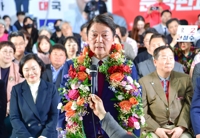 PPP lawmaker says entire Cabinet should resign over general elections defeat
PPP lawmaker says entire Cabinet should resign over general elections defeat
-
 Relax, immerse yourself in scents at Venice Biennale's Korean Pavilion
Relax, immerse yourself in scents at Venice Biennale's Korean Pavilion -
 Overdue debut of Korean abstract art pioneer Yoo Young-kuk at Venice Biennale
Overdue debut of Korean abstract art pioneer Yoo Young-kuk at Venice Biennale -
 Defense chief says N. Korea's hypersonic missile 'unsuccessful' in last-stage glide flight
Defense chief says N. Korea's hypersonic missile 'unsuccessful' in last-stage glide flight -
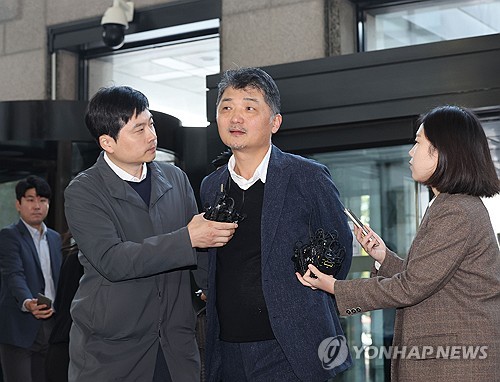 Questioning necessary for Kakao founder for suspected stock rigging: prosecution
Questioning necessary for Kakao founder for suspected stock rigging: prosecution -
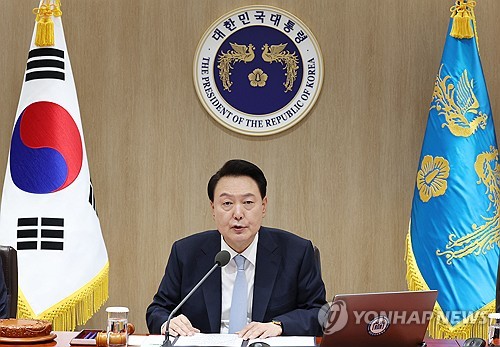 (LEAD) Yoon vows to improve communication with people after election defeat
(LEAD) Yoon vows to improve communication with people after election defeat
-
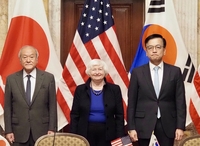 (4th LD) Finance chiefs of S. Korea, U.S., Japan recognize 'serious' concerns over 'sharp' won, yen depreciation
(4th LD) Finance chiefs of S. Korea, U.S., Japan recognize 'serious' concerns over 'sharp' won, yen depreciation -
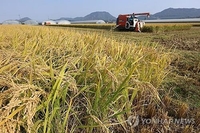 S. Korea to provide 100,000 tons of rice to 11 nations
S. Korea to provide 100,000 tons of rice to 11 nations -
 Facebook page unveils photos of BTS member V in counter-terrorism unit gear
Facebook page unveils photos of BTS member V in counter-terrorism unit gear -
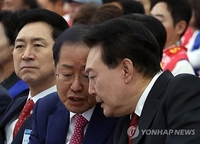 Yoon, Daegu mayor met to discuss post-election matters: sources
Yoon, Daegu mayor met to discuss post-election matters: sources -
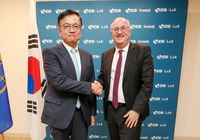 S. Korea to provide US$200 million in humanitarian aid to Ukraine this year
S. Korea to provide US$200 million in humanitarian aid to Ukraine this year

